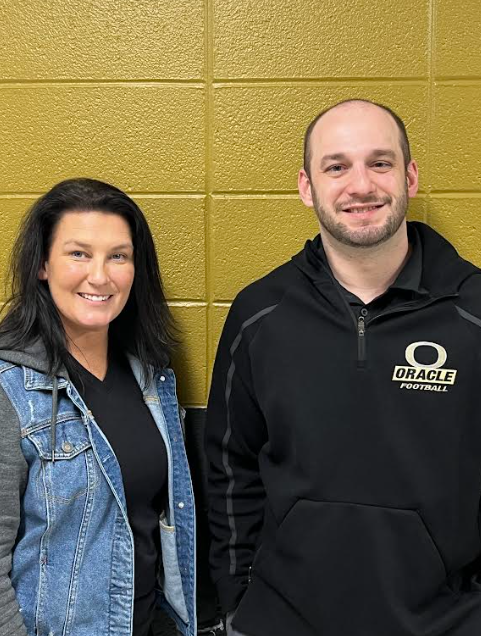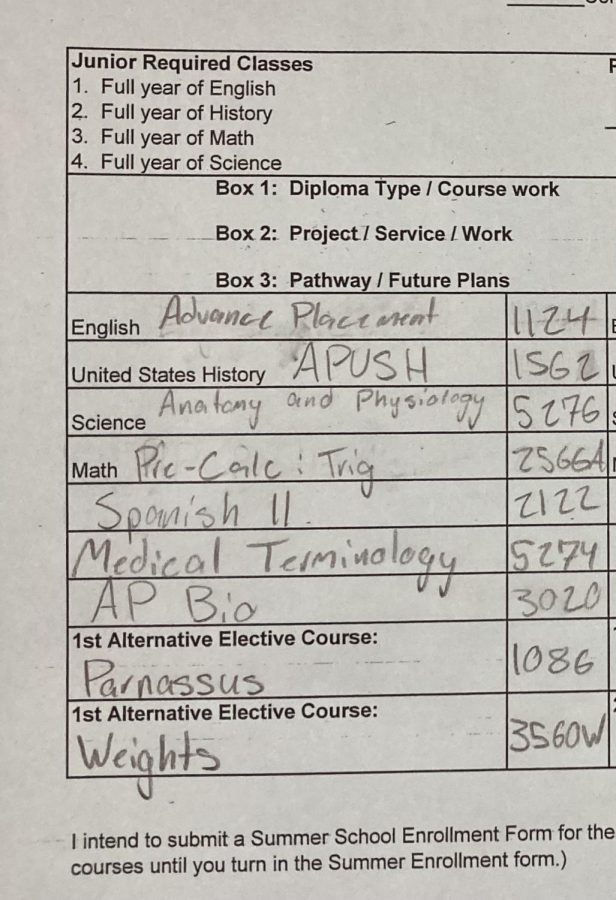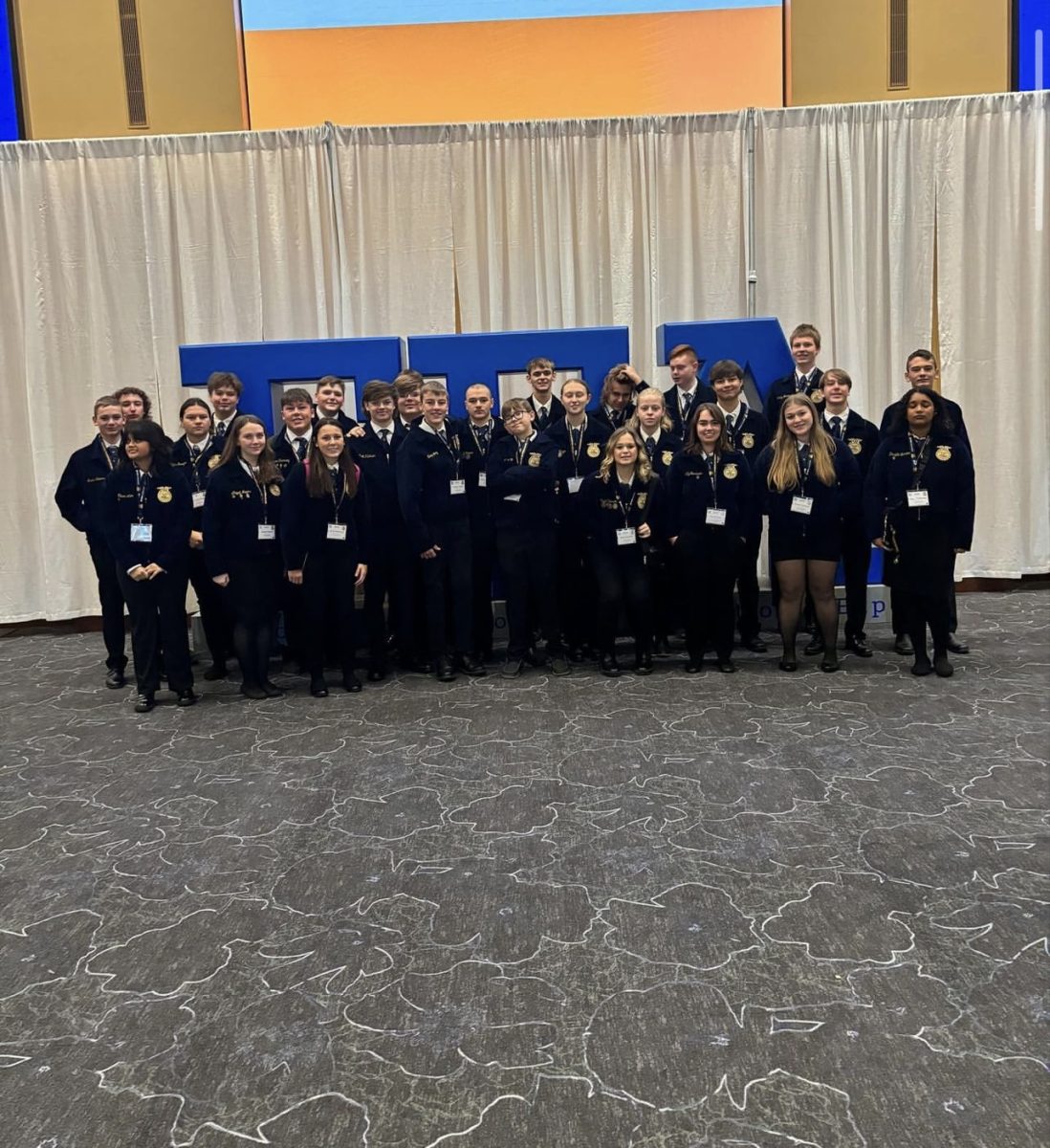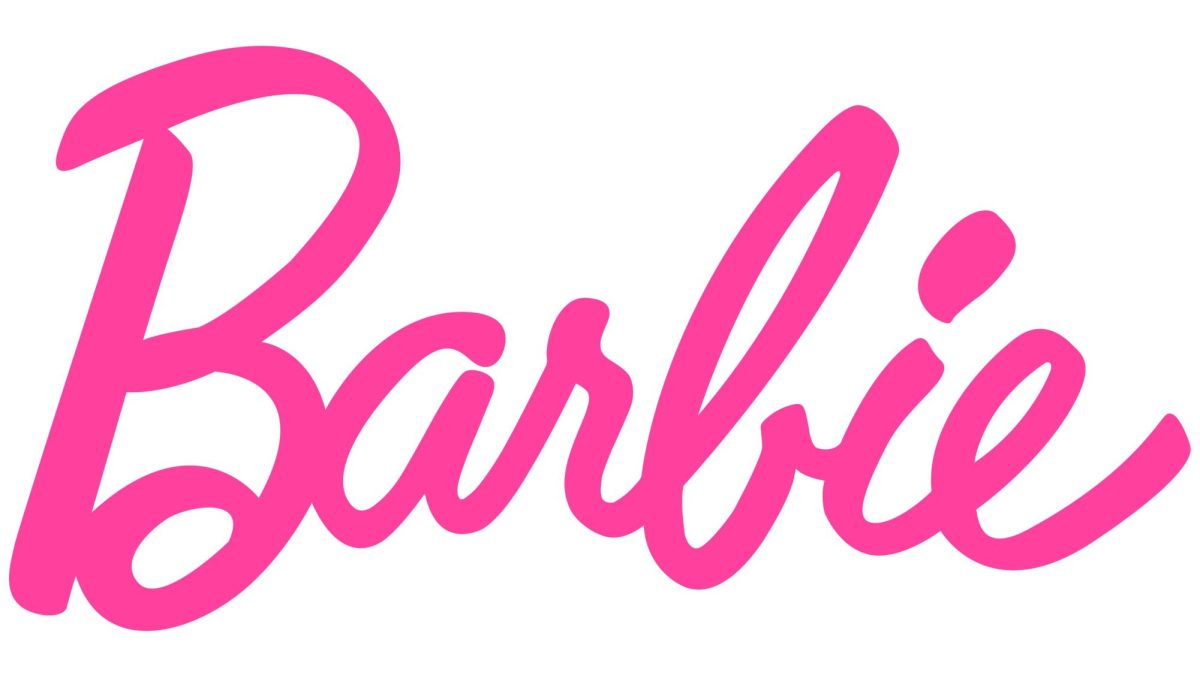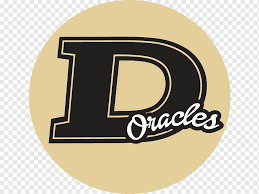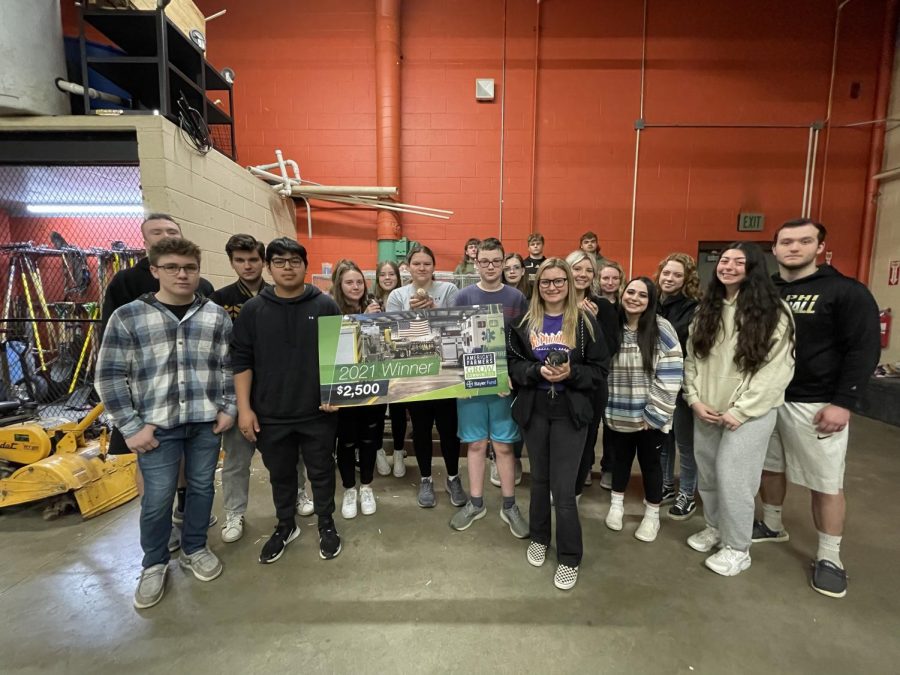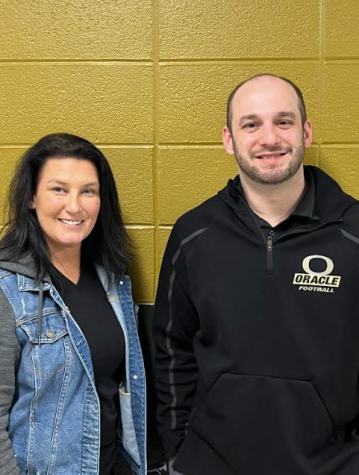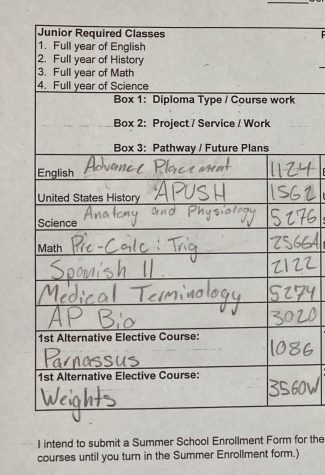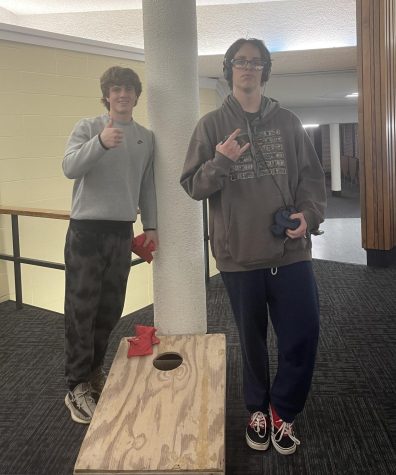Animal Science getting pygmy goats
In August of 2021, local farmers Philip and Teresa Martin from Camden were awarded an America’s Farmers Grow Communities donation, sponsored by Bayer Fund. They directed the donation to Delphi Community High School’s (DCHS) agriculture department, more specifically the Animal Science classes.
With the money received from the grant, the Animal Science classes will be getting four pygmy goats that will call the ag wing their home. “I’ve wanted live animals in the Animal Science room since I came here 8 years ago,” commented Mr. Plank. “I’ve always wanted pygmy goats in there but never felt I had the funds necessary to spend on them.” Due to the grant, Delphi Animal Science will now be able to get pygmy goats and the needed supplies and tools. The goats will be born in April of 2022 and be weaned off their mother’s in June. Due to the students not being in class during the summer, the goats will be spending the summer with the Animal Science teacher, Mr. Plank. The goats will then return to school in August with the rest of the student body.
Due to the high demand of pygmy goats, they were difficult to find, but worth the wait when you take into consideration the benefits, both educational and not, that come with pygmy goats. For starters, they are small. At maturity the average height is 1-2 feet. Another benefit is that they don’t have a bad manure smell. Pygmy goats also have hair similar to that of other types of livestock, such as cattle, which will allow the students to experiment with different hair growth trails. For example, the control goat may get his legs washed and blown, while the other goats will get their legs washed, blown, and have an animal hair growth product applied to them. Trials such as these will allow students to be able to determine which products work best for their goals. Having goats will also allow for students to have a more hands-on experience with the material learned in the classroom such as checking vital signs, reproduction, and nutrition. Having live animals is a great way for students in both the advanced and regular Animal Science classes to learn. Some days the whole class period will be spent out in the animal science room monitoring the goats, while other days they may only spend five minutes out there. However, students will be working with the goats every day.
During extended breaks, the goats will likely go home with Mr. Plank, but on Friday’s before school lets out, the students will be responsible for feeding and watering the goats. They will be on an automatic waterer and feeder. Students will also be responsible for the care and maintenance of the goats as well as cleaning up after them.
When the goats reach maturity, they will likely be kidded out. If the offspring is sold, the profits will be returning to the Animal Science Classroom/Delphi FFA. Anyone is welcome to see the goats when they arrive, but they are here for educational purposes, not entertainment.

Emily is a senior at Delphi and is in her third year of Parnassus. She is involved in golf, tennis, Student Council, National Honor Society, Creative Writing...




